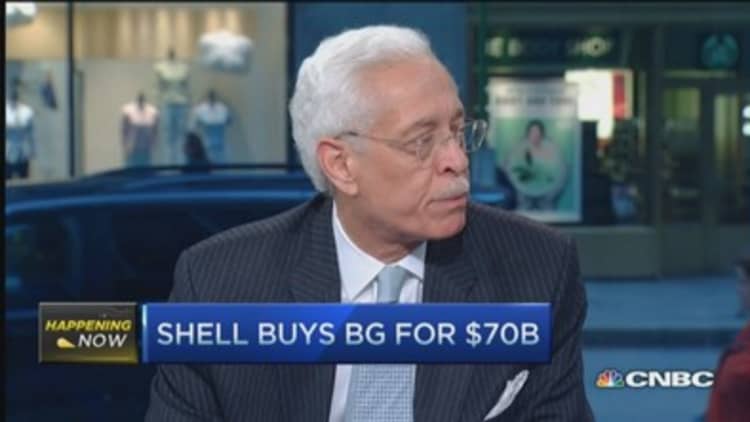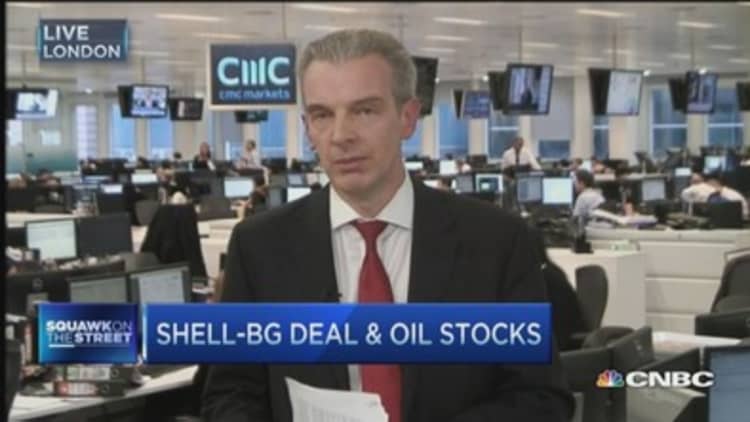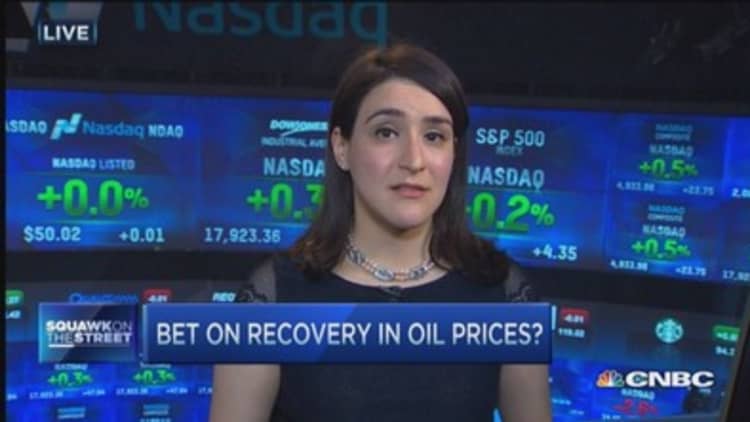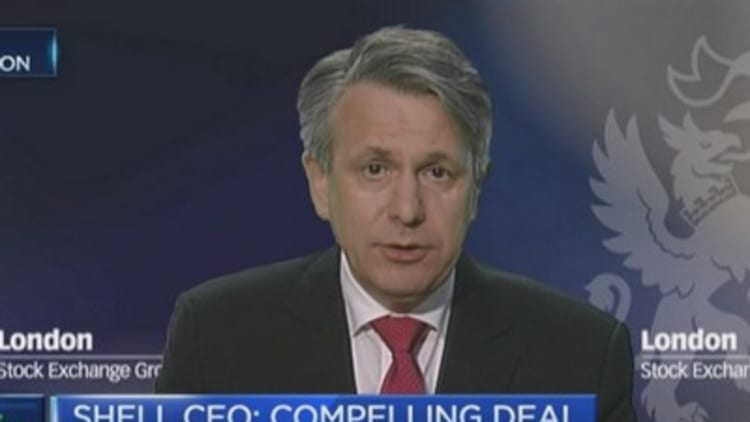


Royal Dutch Shell's nearly $70 billion buyout of BG Group is just the start of energy sector mergers, Fadel Gheit, senior energy analyst at Oppenheimer & Co., said on Wednesday.
"The industry is overdue for one, and there are so many players, the field is so crowded and cost inflation was skyrocketing. Now we are going to rebase the industry," he told CNBC's "Squawk Box."
Royal Dutch Shell announced on Wednesday it had struck a cash-and-stock deal to buy BG Group for £47 billion ($70.2 billion). The buyout would boost Shell's proven oil and gas reserves by 25 percent and its production by 20 percent on a 2014 basis, the company said in a statement.
The acquisition marks the biggest deal in the oil industry since December 1998, when Exxon bought Mobil for $80 billion. Chevron's purchase of Texaco for $36 billion in stock in 2000 capped a wave of energy sector consolidation in the late '90s.
Read MoreA signal shows more oilfield mergers may be coming
Moving forward, Exxon Mobil is a potential buyer, Gheit said, noting that the company has enough financial assets to theoretically purchase Shell, its largest rival, he said.
Exxon Mobil CEO Rex Tillerson is also facing mandatory retirement in the next two years, and he wants to do a transformational deal that can secure his legacy at the company, Roberto Friedlander, head trader at Brean Capital, told CNBC.
"This means the deal has to come sooner rather than later in order to have it fully integrated before he retires," he said.
Potential buyers also face pressure to get deals before the Federal Reserve begins to lift interest rates from near zero.
Among the energy players Friedlander sees as potential targets are integrated oil and gas company Hess as well as independent U.S. exploration and production firms Pioneer Natural Resources, Anadarko Petroleum, Whiting Petroleum, Marathon Oil and EOG Resources.
Oil majors will also have distressed resource and mining names such as Alpha Natural Resources, Arch Coal and Peabody Energy in their sights, he said.
Read More These energy stocks are rooting against crude oil
As for companies in Europe that stand out as potential acquisitions, London-based Tullow Oil is the most likely target, Michael Hewson, senior oil analyst at CMC Markets, told CNBC's "Squawk on the Street." He noted that Tullow's share price has plummeted about 60 percent in the last year.
"Certainly I think in the context of picking up an asset fairly cheap, it's got a market cap of £3 billion, so you certainly wouldn't be betting the farm on acquiring maybe Tullow Oil."
While Shell's BG deal has sparked speculation about who is next, Nasdaq energy analyst Tamar Essner said it's too soon to tell whether Wednesday's announcement is a harbinger of things to come.
"In general, it's a favorable condition to have easy access to capital and a distressed commodity price environment, but more broadly, executives have been saying that they've been gun-shy about making acquisitions," she told CNBC's "Squawk on the Street." "They want to make sure that whatever they buy will be accretive right away, so that will put a damper on deals in terms of this year."



Shell said the BG deal would increase its exposure to deep-water drilling and natural gas products, including LNG, or liquefied natural gas. This comes at a time when oil prices have entered a protracted period of weakness, with trading about 50 percent below its peak in June 2014.
"It's fair to say that of course the changing macro environment made this deal, apart from being a very, very good fit and a logical deal, of course a very compelling one from a financial perspective as well," Ben van Beurden, CEO of Royal Dutch Shell, told CNBC on Wednesday.
The deal does not, however, represent a bet on oil prices, he said.
Read MoreShell's BG deal: The biggest oil price bet yet?
Gheit said the move made sense because it will make Shell's assets more valuable. The deal is not big for the sake of being bigger, but big for the sake of being better, he added.
Shell forecast that the transaction would create $2.5 billion in pretax synergies.
"It's a good deal because basically synergy benefits are going to be in the billions of dollars. It will vertically integrate Shell to become the largest natural gas player in the world. This is a clean fuel, cleaner than oil. It is more abundant, and it is cheaper," Gheit said.





